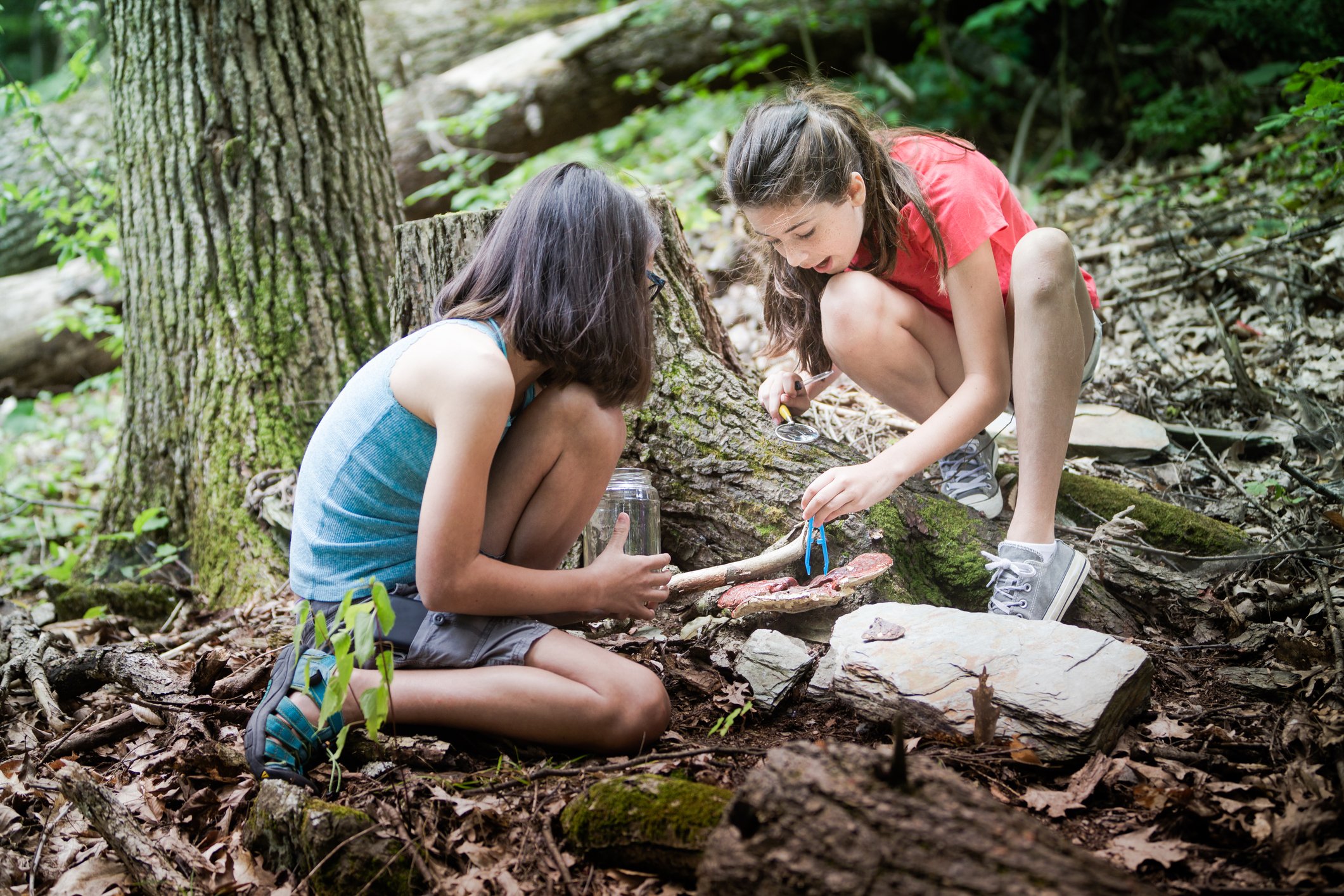
Science
Our science program develops critical thinking and scientific literacy.
We believe that science is for everyone. Science is not just for those who aspire to become scientists or engineers. Our curriculum is designed to engage every student, helping them develop critical thinking skills and scientific literacy. We believe that a strong foundation in science is key to building a more informed and awe-inspired citizenry, one that can make responsible decisions and serve as passionate stewards for the future of this planet.
Explore our Science program!
-
5th and 6th grade science focuses on the natural world. The natural world is the perfect topic for 5th and 6th graders because it’s so tangible, and kids at this age are naturally curious. Our hope is that by studying the world around us, we can tap into students’ curiosity and help them develop a long-lasting love for science. During this two-year science sequence, we promote a sense of stewardship for our future and our planet and develop the observational and analytical skills needed for further study.
-
When learning about the natural world in 5th and 6th grade, our weekly fieldwork regularly gets students out of the building to observe, question, and experiment with their local environments. Some examples of science fieldwork include testing water quality from different water sources across the city, investigating the working of a water treatment facility, and maintaining detailed observation journals at Rock Creek Park, our school’s namesake. Fieldwork is tangible, helping students at this age to develop a strong, intuitive understanding of the world around them, and laying the groundwork for more advanced scientific study.
-
The majority of science research today is data-driven. Rock Creek is the first DC-area school to offer a true data science sequence. Starting in 5th grade, students regularly conduct data science projects that are linked to their science curriculum. In one project, students use data on water quality to analyze the environmental effects of different pollutants; in another, students work with data on plant growth to quantify the importance of different environmental factors for local species. As students move through the curriculum, they engage in more sophisticated data science tasks, and by the time they reach high school, interested students are equipped to tackle advanced data science challenges in their electives–analyzing large datasets, using machine learning algorithms, and conducting independent research projects that involve significant data analysis.
-
Most schools in America separate biology, chemistry, and physics into different years of study. At Rock Creek, we integrate them. Teaching this way – which is the norm in much of Europe and Asia – helps students build a longer-lasting foundation in science. With this model, less time passes before we return to a topic, reinforcing students’ understanding instead of allowing them to forget. The model also allows students to appreciate the interconnectedness of scientific fields. Biology lessons, for example, include the chemical processes that affect cellular functions, and chemistry classes cover the physics governing molecular motion. When students draw connections between chemistry and biology, or chemistry and physics, they form a deeper understanding of science as a whole schema, which is an understanding built to last. By encouraging students to apply knowledge across different scientific domains, our courses mirror real-world scientific inquiry.
-
In 11th and 12th grades, Rock Creek offers students the chance to dive deeper into classical sciences—biology, chemistry, and physics—alongside semester-long electives. Some science electives offer students the chance to take a close look at cutting-edge science topics, like genetics, CRISPR, artificial intelligence, and climate science, while other electives, like “Science in Society” and “Writing Science,” allow students to study science through the lens of the humanities. Whether researching at the cutting-edge of science, or thinking about the role of technology in society, our electives are current and relevant, allowing students to develop and pursue interests in science. Our science electives are a springboard toward advanced study.
-
Our science curriculum is built on the foundational belief that science is not confined to laboratories or textbooks but is a way of understanding and engaging with the world around us. It is a dynamic method of thinking through which we can explore the mysteries of the natural world, solve complex problems, and make informed decisions that impact our communities and the planet. This belief underpins our approach to science education, which is designed to inspire curiosity, foster critical thinking, and prepare students to be informed, responsible, and active citizens.





